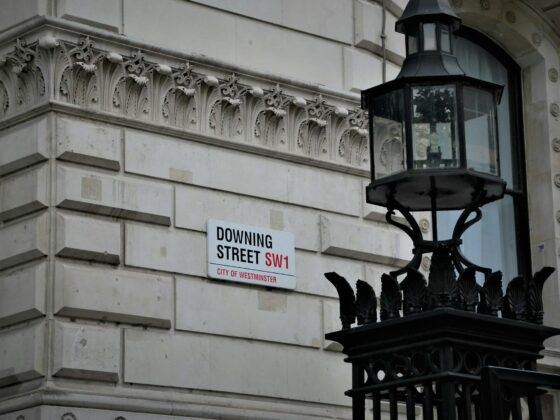
The 80/20 labor rule ended this month after being struck down by the Fifth Circuit Court of Appeals for being “both arbitrary and capricious” and contrary to the Fair Labor Standards Act.
The updated rule, sometimes called the 80/20/30 rule, only allowed employers to pay their employees the subminimum wage (or federal tip credit of $2.13 per hour) to supplement earned gratuities while workers were performing tip-earning tasks.
The rule was enacted during the Obama administration, rolled back during the Trump administration, and then brought back under the Biden presidential administration with updated clarifications about what constitutes tipped work and what does not. If a tipped employee spent more than 20% of their workweek on tip-supporting tasks or more than 30 minutes in a row, employees would not be allowed to take a tip credit.
Now that the 80/20 rule is no longer in effect, restaurant operators and other businesses with tipped employees can go back to adhering to the original tip credit rule, and only need to supplement workers’ wages beyond the federal tip credit if a worker does not receive the rest of the federally mandated minimum wage in gratuities, or if a state law says otherwise.
Here’s what else operators should know about the return to this former labor law:
Is this a net gain for business owners?
Yes, employment and labor law attorneys believe that even though it may be confusing to have this law change once every several years, this is overall a positive for business owners like restaurant operators.
“I think the main impact will be positive, because this 80/20/30 rule was just one more layer of complication that made it difficult for businesses, including restaurants, to operate,” Paul DeCamp of Epstein Becker Green law firm, said. “It was very difficult for restaurants to track minute-by-minute the time that people spent on directly tip-producing tasks vs. side work, vs. tasks that have nothing to do with tips…. In the real world, tipped employees toggle back and forth between tipped and non-tipped activities many times during a single shift. It was a rule clearly written by people who had never run a business.”
How can business owners keep up with changing labor laws?
As previously noted, the 80/20 rule was passed, rolled back, re-introduced and then overturned over the course of three presidential administrations, which makes it difficult for business owners to keep up.
“When you have rules that seem to swing like a pendulum from one administration to the next, it makes it very difficult for businesses to set up and continue their practices, and it’s not practical or cost effective for businesses to try to figure out one rule only to change it again,” DeCamp said. “Changing your practices can be very disruptive. It can be confusing for managers and supervisors. This happens with all kinds of federal regulations. Agencies changing their interpretations based on political winds is bad for business.”
How can operators prepare their employees?
First of all, DeCamp said, operators should make sure they are not in a state that has enacted a new minimum wage law, gotten rid of the tip credit, or enacted its own version of the 80/20 rule (around six states have done so).
“If you’re changing anything, you need to communicate it in advance before the change goes into effect,” DeCamp said. “They need to make sure that they inform the employees, preferably in writing, in advance of making that change, because even if they are allowed to pay that way, there still could be a claim under contract law if they change the pay for that time without letting the people know in advance.”
Will the Department of Labor try to enact this rule again?
Labor attorneys don’t believe that the Department of Labor will try to put forth the exact same 80/20/30 rule again, because it would just be overturned for the same reasons. But that doesn’t mean the DOL won’t try other tactics to change the way tipped employees are paid:
“At least for now, the 80/20 regulation no longer exists, but that begs the question of what, if anything, will replace it,” Dan Boatwright, attorney with labor firm Littler Mendelson, said. “Fifth Circuit concluded that the FLSA requires focus on occupations, without disaggregating the component tasks of an occupation in a search for which components generate tips. Ultimately, that analysis will benefit businesses and workers by bringing real world clarity and predictability to the law. But for now, employers should continue to closely monitor further developments in this area of the law.”
How does the recent Chevron ruling relate to this?
The recent Supreme Court overturning of Chevron USA Inc. v. Natural Resources Defense Council case requires laws to be written with more precise language that cannot be easily interpreted in different ways by opposing political parties, and it ends deferment to “reasonable” agency interpretations of a law.
With the Loper Bright Enterprises v. Raimondo case, which overturned the Chevron deference, the judiciary was given sole power to interpret a law, instead of regulated agencies like the Department of Labor.
“As has always been the case, courts are tasked with interpreting and enforcing statutes like the FLSA, and Loper Bright emphasized how courts should go about that work,” Boatwright said. “Congress has the power to amend the text of statutes if it disagrees with how courts have interpreted the statutes. We believe the Fifth Circuit’s interpretation of the FLSA’s tip credit provision is sound and true to the statute, and we don’t believe any changes to the statute are called for.”
Therefore, if the Department of Labor wants to change the federal tip credit law under the Fair Labor Standards Act, it will have to introduce new, precise legislation to do so in a way that’s consistent with and doesn’t clash with the FLSA.
Contact Joanna at [email protected]









